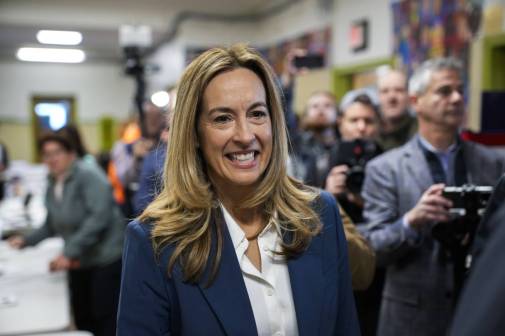New Jersey passes law criminalizing deepfakes

New Jersey this week joined the dozens of states that have passed laws criminalizing the production or distribution of AI-generated media featuring the likenesses of real people, also known as deepfakes.
The legislation, which Gov. Phil Murphy signed on Wednesday, imposes civil and criminal penalties on anyone who makes or shares deepfakes. It also makes producing and sharing the deceptive media a third-degree crime if it’s used for additional unlawful behavior, such as online harassment, with fines up to $30,000 or a maximum of five years in prison.
“I am proud to sign today’s legislation and take a stand against deceptive and dangerous deepfakes,” Murphy said in a press release. “While artificial intelligence has proven to be a powerful tool, it must be used responsibly. My Administration is laser-focused on combatting misinformation and ensuring media integrity.”
The catalyst for the bill was an incident at a New Jersey high school in which a student was victimized by her classmates, who had created and shared explicit AI-generated images of her.
Murphy conditionally vetoed the bill in March, urging lawmakers to change its language to limit potential constitutional challenges. The legislature amended it, and that version passed unanimously in the Senate and by a 64-13 vote in the state assembly.
“Deepfakes have the potential to cause irreparable harm when used for criminal purposes,” said Rep. Lou Greenwald, one of the bill’s primary sponsors. “This legislation takes a proactive approach to technological advancements and will safeguard New Jersey residents. By establishing additional penalties for the use of this technology to commit crimes, we can deter the use of deepfakes and provide judicial remedies for victims.”
A growing number of states have sought to regulate deepfakes in recent years, particularly in areas of online harassment and politics.
According to the National Conference of State Legislatures, 27 states have enacted new laws to address the proliferation of sexual deepfakes generated by AI, and 18 states have limited the use of deepfakes in political campaigns.
Some states, such as Florida and Wisconsin, prohibit AI-generated political advertisements unless they include a disclosure statement, while Texas and Minnesota prohibit political deepfakes regardless of whether there is a disclosure statement.
Last year, Tennessee passed the Ensuring Likeness Voice and Image Security Act to protect musicians from AI-generated audio mimicking their voices. California’s laws address harms caused by AI deepfakes, including promoting transparency, protecting creative rights and mitigating privacy harms.






